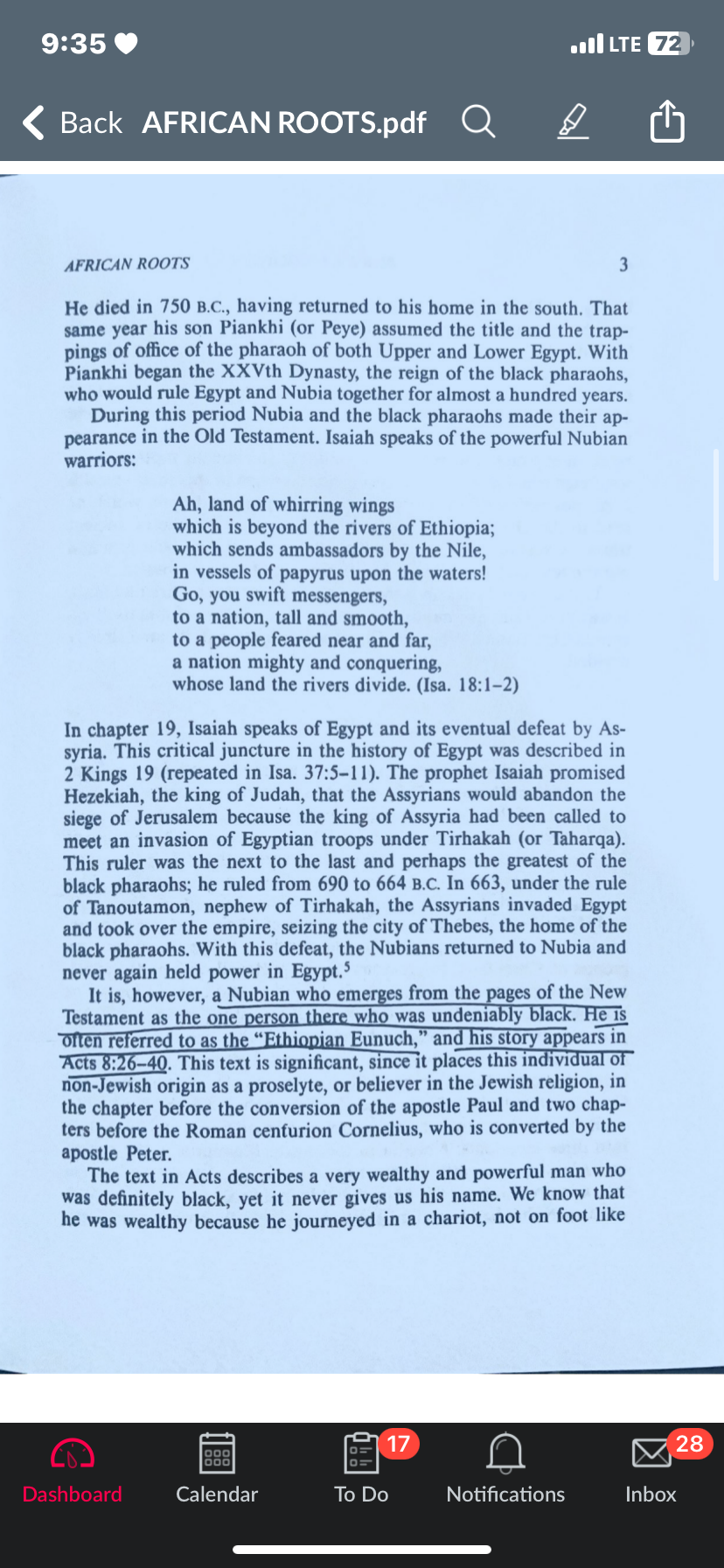What is the historical significance of Piankhi and the black pharaohs in Egypt and Nubia, and how are they represented in religious texts?

Understand the Problem
The question focuses on the historical significance of the black pharaohs in ancient Egypt, mentioning key figures such as Piankhi, and highlights their impact on the region of Nubia and their representation in the Old Testament, as well as the Ethiopian Eunuch from the New Testament. It aims to understand the connection between these historical elements and their depictions in religious texts.
Answer
Piankhi united Egypt and Nubia, impacting culture and religion; Isaiah and Acts reference their significance.
Piankhi, a Kushite king, founded Egypt's 25th Dynasty, uniting Egypt and Nubia. The 'Black Pharaohs,' including Piankhi, are noted for significant cultural influence. In the Bible, Isaiah refers to their strength, highlighting their historical and religious importance. The Ethiopian Eunuch in Acts 8 emphasizes their connection to early Christianity.
Answer for screen readers
Piankhi, a Kushite king, founded Egypt's 25th Dynasty, uniting Egypt and Nubia. The 'Black Pharaohs,' including Piankhi, are noted for significant cultural influence. In the Bible, Isaiah refers to their strength, highlighting their historical and religious importance. The Ethiopian Eunuch in Acts 8 emphasizes their connection to early Christianity.
More Information
The 25th Dynasty, led by Nubian kings like Piankhi, revived Egyptian traditions and architecture, marking their control of both regions as a high point of cultural and political synergy. The biblical references underscore their broader geopolitical influence in ancient times.
Tips
Confusing Piankhi with other Nubian rulers. Ensure clarity on the timeline and roles within the 25th Dynasty.
Sources
- Nubia's Black Pharaohs | Discover Magazine - discovermagazine.com
- Twenty-fifth Dynasty of Egypt - Wikipedia - en.wikipedia.org
- Piye - Wikipedia - en.wikipedia.org
AI-generated content may contain errors. Please verify critical information